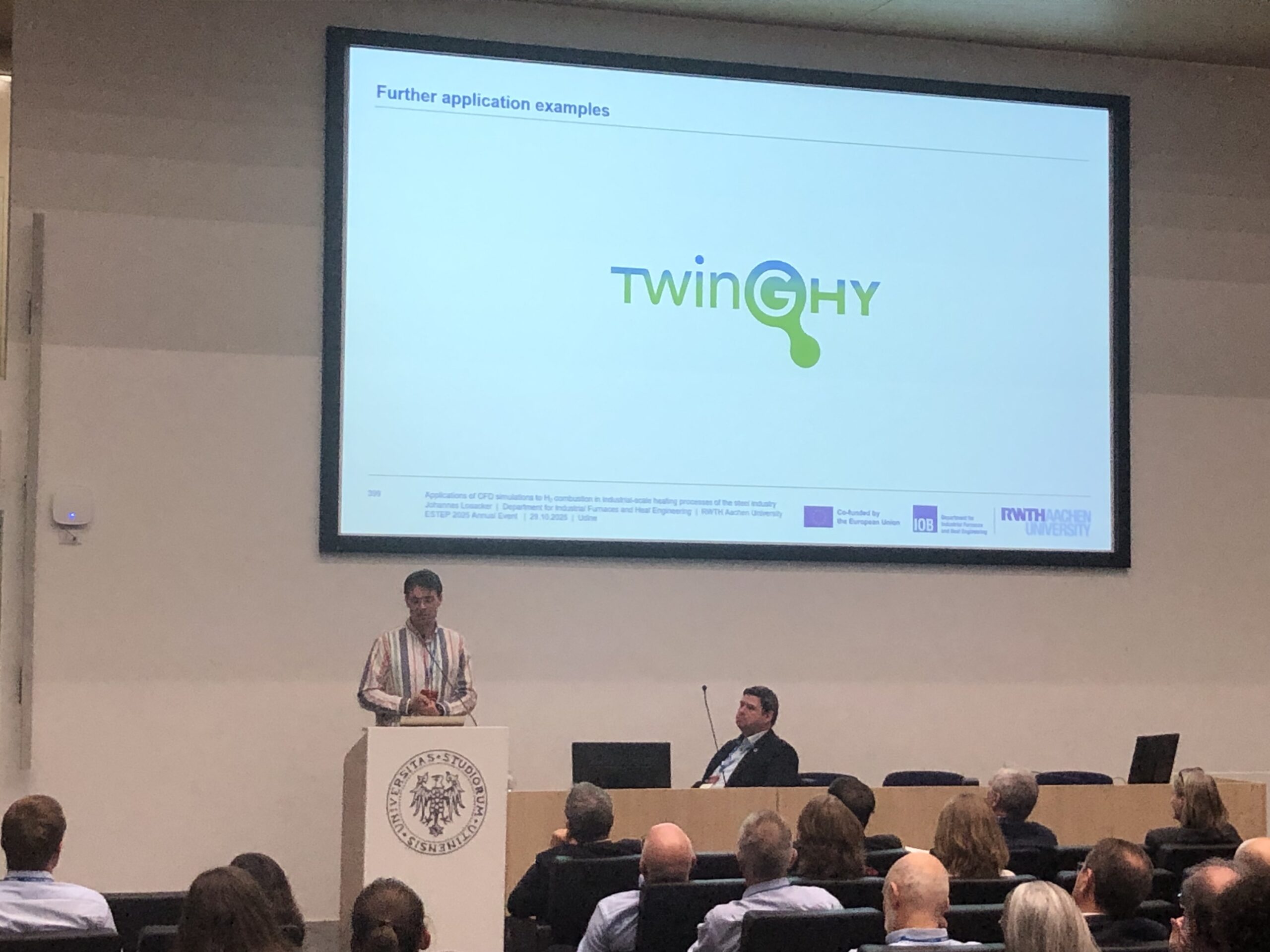TWINGHY was present at the ESTEP Annual Event 2025, held in Udine, Italy, from 28 to 30 October. The meeting was organised by ESTEP (the European Steel Technology Platform), which brings together steel companies, research centres, universities, industry associations and institutional representatives to drive technological innovation in the steel sector. During the event, Johannes Losacker (RWTH Aachen – IOB) contributed to the session on decarbonising the steel industry with his presentation titled “Applications of computational fluid dynamics simulations to hydrogen combustion in industrial-scale heating processes of the steel industry.”
During his presentation, Johannes Losacker demonstrated how CFD simulations can be employed to analyse the behaviour of hydrogen combustion in industrial furnaces. He evaluated key parameters such as flame stability, temperature distribution and NOx formation, all of which are crucial when introducing carbon-free fuels into high-temperature processes. The results presented are based on work carried out in the European HyInHeat and TWINGHY projects.

These simulations are used to design and validate flexible combustion strategies that allow reheating furnaces to operate with different mixtures of hydrogen and natural gas. At TWINGHY, these models are also integrated into a digital twin of the furnace, which makes it easier to predict thermal behavior, optimize energy efficiency, and guarantee the quality of the reheated material under different operating conditions.
This contribution highlights the crucial role of advanced simulation tools in mitigating risks and expediting the shift towards sustainable fuels in the steel industry.
